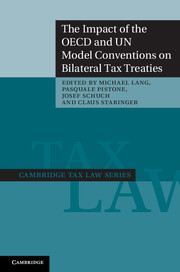Book contents
- Frontmatter
- Contents
- Contributors
- Preface
- Table of cases
- Table of statutes
- General report
- 1 Argentina
- 2 Australia
- 3 Austria
- 4 Belgium
- 5 Brazil
- 6 Canada
- 7 Chile
- 8 China
- 9 Colombia
- 10 Croatia
- 11 The Czech Republic
- 12 Estonia
- 13 Finland
- 14 France
- 15 Germany
- 16 Hong Kong
- 17 Hungary
- 18 India
- 19 Italy
- 20 Lebanon
- 21 Liechtenstein
- 22 The Netherlands
- 23 New Zealand
- 24 Norway
- 25 Peru
- 26 Poland
- 27 Portugal
- 28 Romania
- 29 The Russian Federation
- 30 Serbia
- 31 Slovakia
- 32 Slovenia
- 33 Spain
- 34 Sweden
- 35 Uganda
- 36 The UK
- 37 The USA
- Index
- References
20 - Lebanon
Published online by Cambridge University Press: 05 November 2014
- Frontmatter
- Contents
- Contributors
- Preface
- Table of cases
- Table of statutes
- General report
- 1 Argentina
- 2 Australia
- 3 Austria
- 4 Belgium
- 5 Brazil
- 6 Canada
- 7 Chile
- 8 China
- 9 Colombia
- 10 Croatia
- 11 The Czech Republic
- 12 Estonia
- 13 Finland
- 14 France
- 15 Germany
- 16 Hong Kong
- 17 Hungary
- 18 India
- 19 Italy
- 20 Lebanon
- 21 Liechtenstein
- 22 The Netherlands
- 23 New Zealand
- 24 Norway
- 25 Peru
- 26 Poland
- 27 Portugal
- 28 Romania
- 29 The Russian Federation
- 30 Serbia
- 31 Slovakia
- 32 Slovenia
- 33 Spain
- 34 Sweden
- 35 Uganda
- 36 The UK
- 37 The USA
- Index
- References
Summary
The relevance of the OECD and the UN Model Conventions and their Commentaries for the interpretation of Lebanese tax treaties
Introduction
Lebanon has a network of twenty-nine tax treaties in force and is negotiating with an additional twenty countries. Until 1995, the only existing tax treaty was with France. Since the end of the war in 1990, one of the pillars of Lebanese government policy has been the improvement of the investment climate. Hence, the Ministry of Finance has focused on the negotiation of tax treaties as one of the main legal tools contributing to the enhancement of the business climate.
This policy, however, was not given the necessary resources in terms of human and financial capital. In 1996 an external consultant was hired by the Ministry of Finance to take charge of the negotiations of tax treaties. This consultant was to collaborate with the Head of the Revenue Directorate – who is mandated by law to negotiate tax treaties – and train civil servants. To date, no unit dedicated to the negotiations and the implementation of tax treaties has been created within the revenue administration, leading to a limited experience in this field among civil servants.
This situation accurately reflects the limited extent of the knowledge and understanding of tax treaties within the business community and the tax consulting firms and among lawyers and judges. In this context, it is not surprising that there is no precedence of applying tax treaties in the Lebanese jurisprudence of the Council of State. The cases covered in this chapter mainly concern administrative cases and some queries answered by the tax administration over time.
- Type
- Chapter
- Information
- Publisher: Cambridge University PressPrint publication year: 2012

